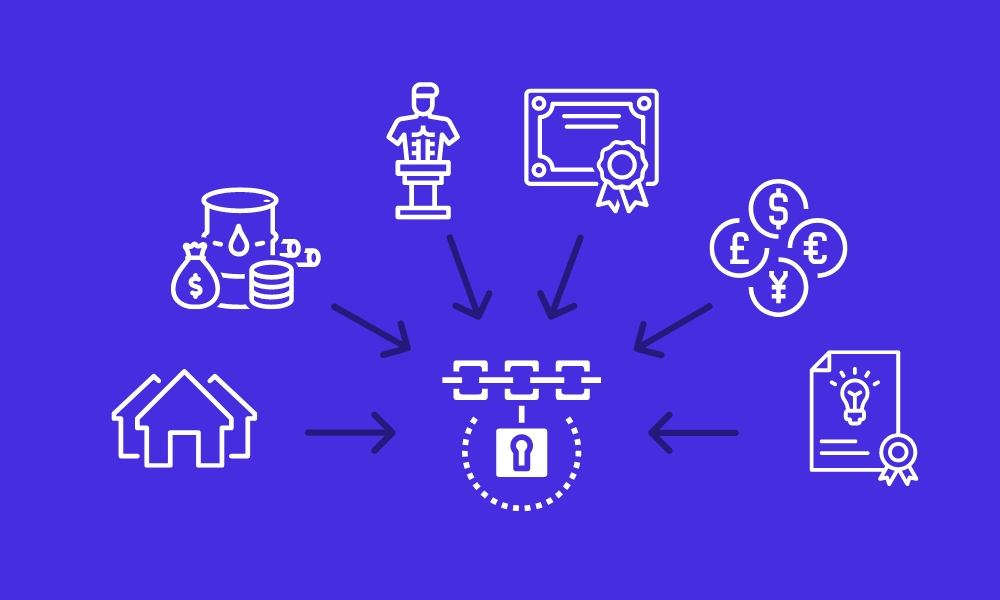Blockchain and Cryptocurrency for Entrepreneurs: Unleashing the Potential for Business Innovation
In the rapidly evolving landscape of modern entrepreneurship, staying ahead often involves embracing cutting-edge technologies. Among these, blockchain and cryptocurrency have emerged as transformative forces with the potential to revolutionize various aspects of business. This article explores the impact of blockchain and cryptocurrency on businesses, providing insights for entrepreneurs keen on integrating these technologies into their startups.

Understanding the Potential Impact on Businesses:
Enhanced Security:
Blockchain's decentralized and cryptographic nature serves as a fortress for data security. Transactions, recorded in an immutable and tamper-resistant manner, significantly diminish the risk of fraud and unauthorized access. This enhanced security is particularly crucial in industries where data integrity is paramount.
Example: Imagine implementing blockchain in supply chain management. By utilizing a decentralized ledger, every step in the supply chain is securely recorded, reducing the likelihood of counterfeit products infiltrating the market. This transparency not only ensures product authenticity but also fosters trust among consumers.
Streamlined Processes:
Smart contracts, a cornerstone of blockchain technology, bring automation and efficiency to contractual agreements. These contracts execute and enforce terms autonomously, minimizing the need for intermediaries. This not only streamlines processes but also translates to cost reductions and accelerated transaction times.
Example: Consider real estate transactions powered by smart contracts. These contracts automate tasks such as payment processing and document verification, simplifying the overall buying and selling process. This not only expedites the transaction but also reduces the complexity associated with traditional real estate dealings.
Transparency and Traceability:
Blockchain's decentralized ledger provides a transparent and traceable record of transactions. This feature is particularly advantageous in industries where the traceability of products is crucial, such as food and pharmaceuticals. Every transaction and movement is securely recorded, offering unprecedented transparency.
Example: In the food industry, blockchain can be employed to trace the journey of a product from the farm to the consumer. This end-to-end visibility ensures that the food's origin, processing, and transportation are verifiable, contributing to food safety and quality assurance.
Decentralized Finance (DeFi):
Cryptocurrencies have paved the way for decentralized finance, disrupting traditional banking models. Entrepreneurs can explore a plethora of decentralized financial services, including lending, borrowing, and trading, without reliance on centralized institutions.
Example: Platforms like Compound and Aave exemplify the potential of decentralized finance. Users can seamlessly lend or borrow cryptocurrency assets, and through innovative mechanisms, they can earn interest on their holdings. This decentralized approach democratizes financial services, making them more accessible globally.
Tokenization of Assets:
Blockchain enables the tokenization of physical and digital assets, representing ownership or a stake in an asset. This process provides fractional ownership, liquidity, and accessibility to a broader range of investors.
Example: Real estate tokenization allows investors to own a fraction of a property, breaking down the barriers to entry for real estate investments. This democratization of asset ownership through tokens enhances liquidity and diversification in traditionally illiquid markets.
In essence, understanding the potential impact of blockchain on businesses reveals a landscape rich with possibilities for enhanced security, streamlined processes, transparency, financial innovation, and the tokenization of assets. Entrepreneurs poised to leverage these advantages can position their businesses at the forefront of a transformative wave in various industries.
Integrating Blockchain Technology into Your Startup:
Identify Applicable Use Cases:
Assess your industry and business model to identify areas where blockchain can bring significant benefits. Consider processes that involve multiple parties, require transparency, or involve complex agreements.
Example: In healthcare, blockchain can be used for secure and interoperable sharing of patient data among healthcare providers.
Collaborate with Blockchain Experts:
Blockchain implementation can be complex. Collaborate with experts or consider partnerships with blockchain development firms to ensure a thorough understanding of the technology and its implications.
Example: Collaborating with a blockchain development team can help customize solutions based on your startup's specific needs.
Educate Your Team:
Ensure that your team, from developers to executives, has a solid understanding of blockchain technology. This fosters a culture of innovation and ensures everyone is on board with the integration.
Example: Conduct workshops or training sessions to familiarize your team with blockchain concepts and their application in your industry.
Pilot Projects and Iterative Development:
Start with pilot projects to test the feasibility and effectiveness of blockchain integration. Embrace an iterative development approach, allowing for continuous improvement based on feedback.
Example: A startup in the logistics industry could pilot a blockchain-based solution for tracking and verifying the authenticity of shipped goods.
Ensure Regulatory Compliance:
Acknowledge the regulatory landscape relevant to your industry and geographical location. Ensure that your blockchain solutions comply with existing regulations. This proactive approach mitigates legal risks and fosters a positive relationship with regulatory bodies.
Example: A fintech startup exploring blockchain for payment processing should meticulously navigate financial regulations to ensure compliance.

In conclusion, entrepreneurs can harness the power of blockchain and cryptocurrency to drive innovation, enhance security, and create more efficient and transparent business processes. Understanding the potential impact on businesses and strategically integrating these technologies can position startups at the forefront of industry transformation.







.png)







